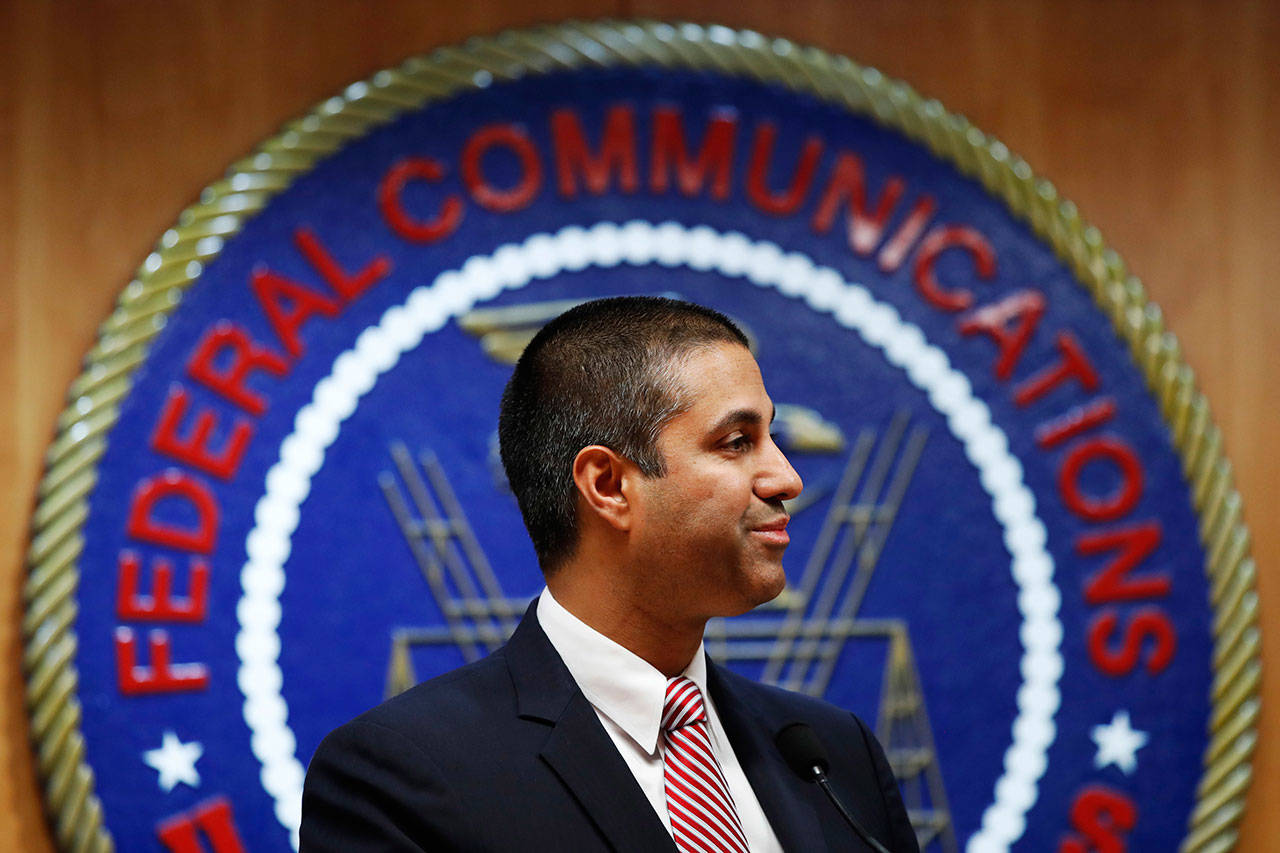By The Herald Editorial Board
While it may get no further than the U.S. Senate, legislation that would restore Obama-era open internet rules, otherwise known as net neutrality, should move forward.
Senate Democrats, joined by one Republican, filed a discharge petition that will force a vote on legislation that would overturn Federal Communication Commission Chairman Ajit Pai’s move last year to scrap net neutrality rules that the FCC established in 2015 under the Obama administration.
Net neutrality — for those readers still with us — essentially regulated the internet as a utility. The regulations prohibited internet service providers from blocking legal content and services, throttling data speed and setting up paid “fast lanes” that would favor their affiliates or those content providers willing to pay more to reach their customers.
Following the FCC’s decision to end net neutrality, which officially takes effect June 11, broadband providers had promised that customers’ online experiences wouldn’t change. And they haven’t. Yet. But the absence of FCC regulation means that those providers will now have the ability to offer new services, via “fast lanes” for certain content providers who will pass on the additional costs to their customers. Under the FCC’s new approach, service providers merely need to disclose to customers that they intend to block content or throttle speeds. And it transfers regulatory authority to the Federal Trade Commission, which could sue only under limited circumstances, such as a provider violating its own terms of service.
Pai’s move prompted action in individual states to protect net neutrality rules at least within those borders, including legislation adopted in Washington state and Oregon. The FCC has argued against states passing their own net neutrality laws, setting up the possibility of a legal challenge, but in signing the legislation, Gov. Jay Inslee, voiced confidence in the legality of the state’s action, saying “the states have a full right to protect their citizens.”
Meanwhile Democrats in Congress, including Washington’s Sen. Maria Cantwell and Rep. Suzan DelBene, backed legislation that would restore the protections. Legislation in the Senate has the best shot at passage.
For Washington state, there’s a clear economic necessity, Cantwell said after filing the petition Wednesday to force a vote.
Cantwell, noting that technology and internet industries account for 7 percent of the nation’s gross domestic product, continued: “This is so important to me, because in the state of Washington, it’s 13 percent of our economy. So the stakes are high with over 13,000 internet companies and a quarter of a million jobs. So, we want an open internet,” and one that does not have barriers to access.
Removing net neutrality leaves internet access and innovation vulnerable to a growing monopoly among internet service providers. Three broadband providers control 70 percent of the market.
“Over the past decade, the prices that Americans paid to these cable companies have risen almost twice as fast as inflation,” Cantwell said.
The Congressional Review Act allows Congress to overturn the actions of federal agencies with a simple majority vote in both chambers and the president’s signature. Senate Democrats, joined by Sen. Susan Collins, R-Maine, have the backing of at least 50 senators for the vote, which could be scheduled within the next two weeks.
The effort, even if successful in the House — admittedly a long shot — would likely be vetoed by President Trump, who celebrated Pai’s move to end the Obama-era regulations.
Some have criticized the Senate Democrats’ action as futile and a distraction from a bipartisan and permanent legislative solution, but Democrats have said the Republican proposals to date have not offered strong enough protections for consumers.
But the Senate vote, even if unsuccessful in the House or before Trump, would put lawmakers on record as to their support for net neutrality. The vote and an outline of what the legislation calls for would also provide a clearer understanding of net neutrality and what it needs to preserve. And it would establish a starting point for permanent bipartisan legislation that could set the rules for an open internet that protect consumer interests, allows for continued innovation and economic development and encourages faster internet access to all corners of the country.
Talk to us
> Give us your news tips.
> Send us a letter to the editor.
> More Herald contact information.

























